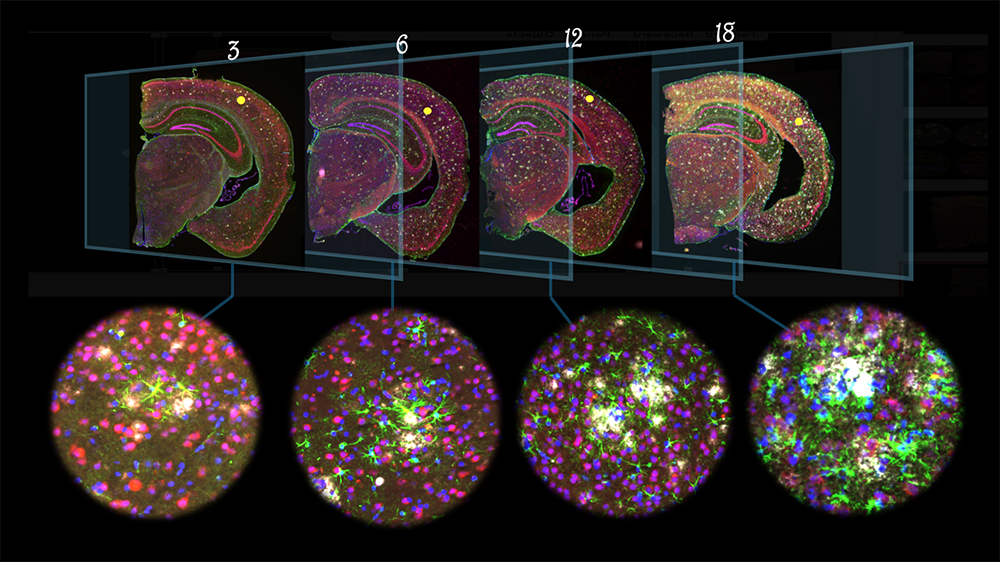Developing state-of-the-art mouse models and phenotyping methods to support the development of new treatments for dementia-causing diseases
Aims
One million people in the UK are currently living with dementia, a devastating neurological condition that can be result from a number of underlying diseases such as Alzheimer’s. With an ageing population in the UK, this enormous health challenge is only set to worsen and effective therapies to slow, stop or prevent these diseases are urgently needed.
The cognitive and behavioural symptoms associated with dementia are caused by progressive brain pathology. Determining the harmful cellular and molecular changes in the brain that affect cognition is key to tackling these devastating conditions, however, there remains large gaps in our understanding. The UK Dementia Research Institute (UK DRI) performs cutting-edge, fundamental, discovery science to fill this knowledge gap and pave the way for new diagnostics, technologies and treatments for dementia.
One of the main challenges facing researchers is to decipher the brain’s complex mix of highly interdependent cell-types, which have key interactions with the immune, vascular and sensory systems. Each type of cell has a different response to dementia pathology, which may also change over the time-course of disease. Understanding these differences and linking this biology to clinically relevant changes is a core objective of the UK Dementia Research Institute (UK DRI) and critical for the development of effective new diagnostics and therapeutics for dementia.
Genetic and epidemiological data indicate that the immune system, metabolic state and cardiovascular health significantly impact on dementia development. Thus how physiology “below the neck” impacts the brains response to pathology is also of key clinical importance. Animal models are a necessity to link molecular and cellular alternations to changes in cognition and to understand how the biology of the body interacts with the brain.
The UK DRI Animal Models Programme supports and leverages the Institute’s considerable expertise in the cellular and molecular mechanisms that underpin dementia development to integrate work across the UK DRI and the wider research landscape to maximise impact; providing a bridge between fundamental mechanisms and clinical datasets for translational studies.

How we do it
The Animal Models programme supports hypothesis-driven targeted in vivo studies based on cutting-edge human dementia research, drawing on UK DRI expertise. We use a multidisciplinary approach including integration and alignment with alternative research methods and programmes within the Institute.
The programme is designed to:
- Generate novel genetically altered mouse models to facilitate in vivo dementia research. These new models leverage knowledge and expertise from within the Institute, and facilitate collaborative research between scientists to address key questions.
- Develop integrated behavioural, sensory and motor phenotyping capacity at the MRC Mary Lyon Centre, so that a broad range of cognitive and physiological changes experienced by people who have dementia can be studied and the efficacy of new therapies tested.
- Generate reference longitudinal data sets of commonly used mouse models of dementia-causing diseases to further facilitate the testing of new therapies and fundamental research
- Support rigorous and high-value in vivo dementia research across the Institute and the wider research landscape by enabling the use of robust genetics, husbandry and experimental design principles.
Programme members
| Name | Organisation | Contact |
|---|---|---|
| Frances Wiseman | UK Dementia Research Institute at University College London | f.wiseman@ucl.ac.uk |
